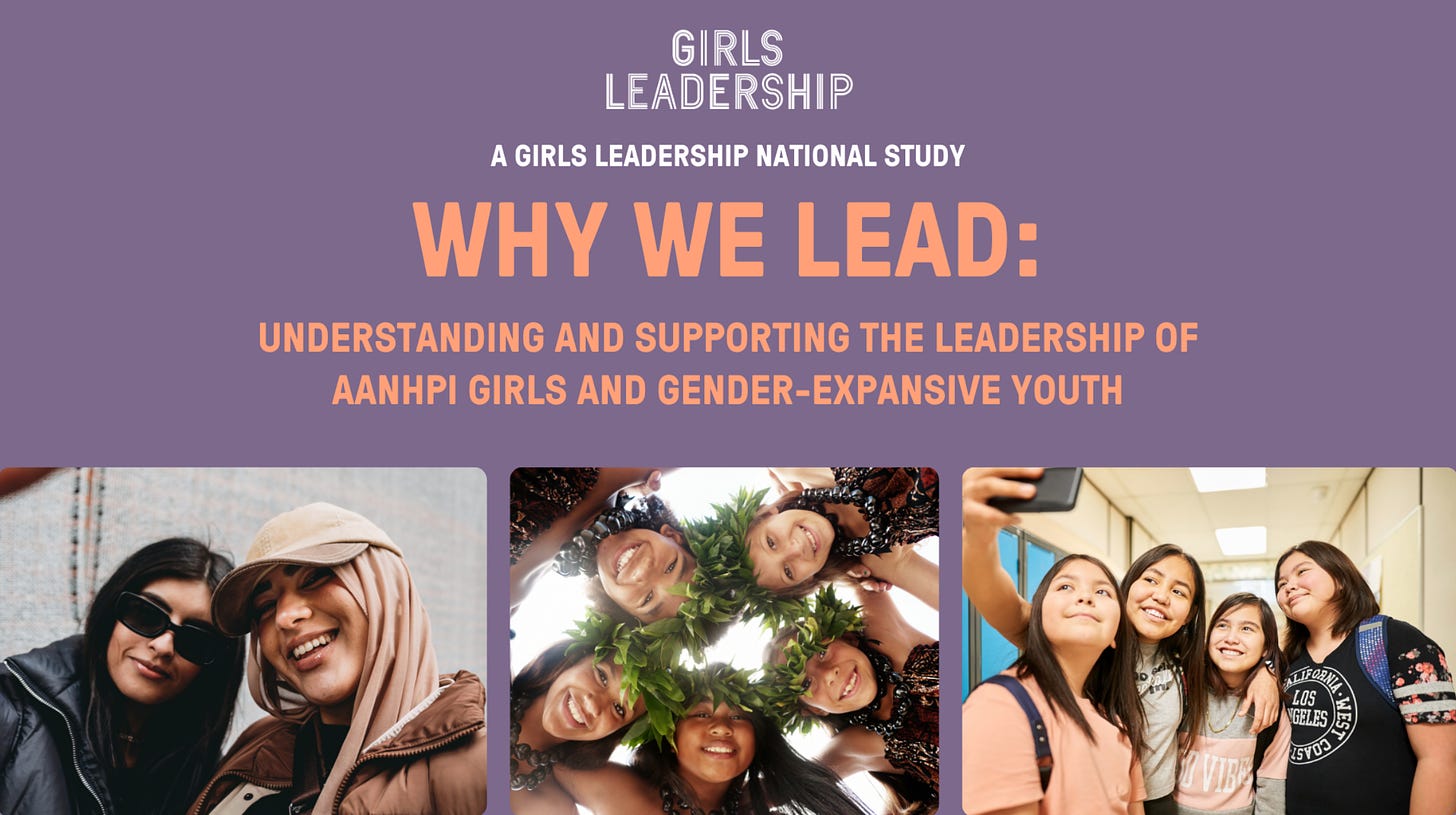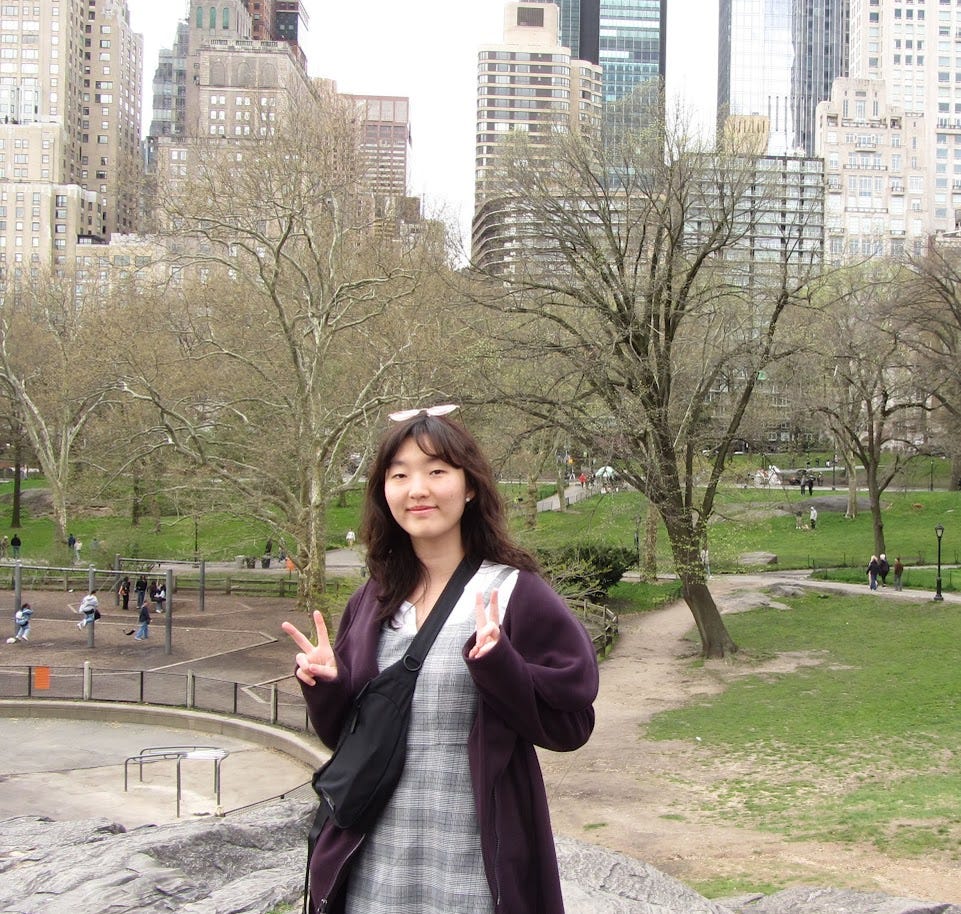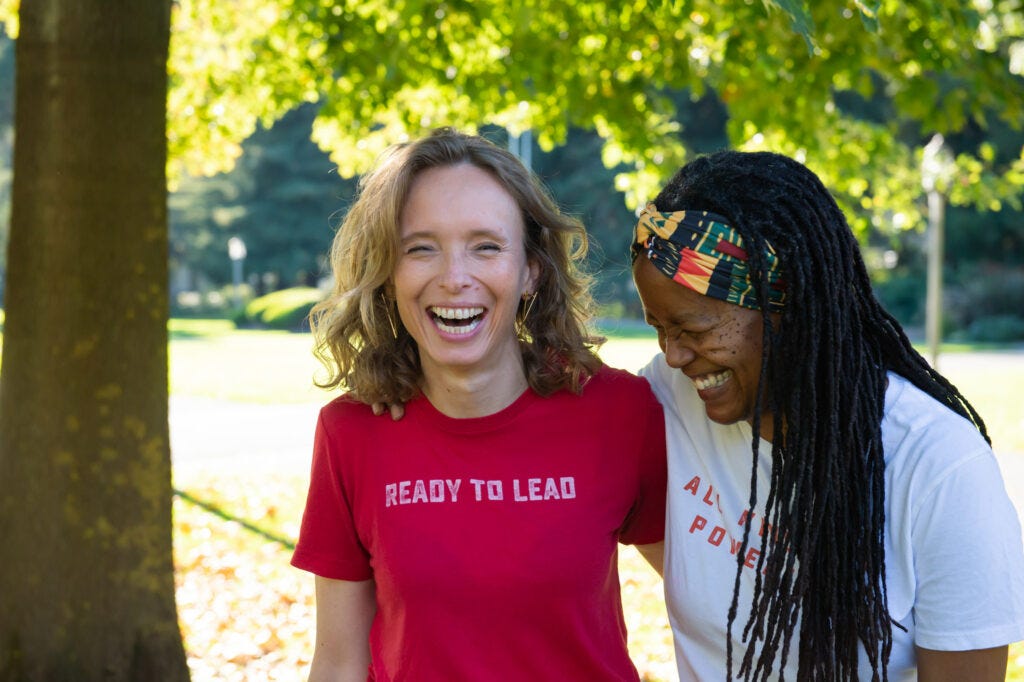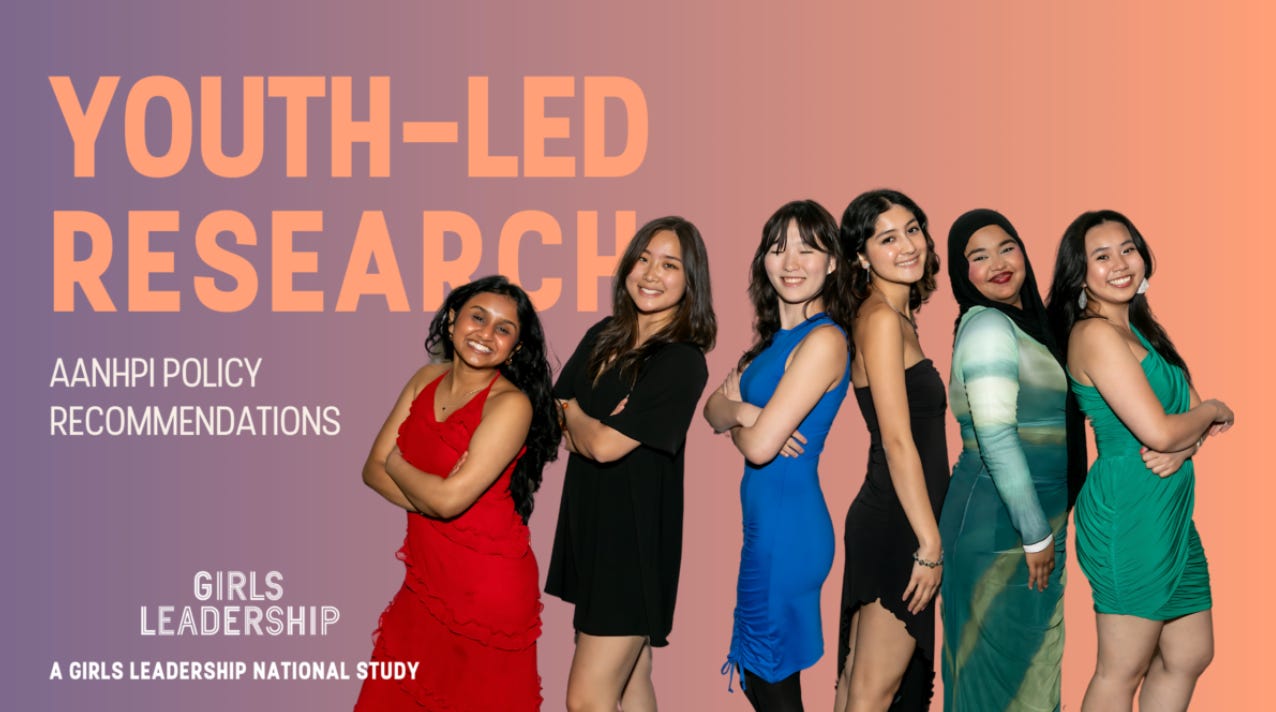Balancing contrasting cultures
5 questions for researcher Yehji Hwang about being young, lonely, and having collective impact
When you picture a young woman leader, what pops into your mind? Maybe Greta Thunberg, climate activist extraordinaire, or even a pop star, like Olivia Rodrigo, who is trying to use her platform to take real action on issues impacting girls and women worldwide. Maybe you think of Simone Biles, who has gotten so much well-deserved attention for her honesty about mental health and competition in the sporting world.
There is, no doubt, a wider variety of public awareness of young women leaders today than when I was a teenager, and yet still, there are whole demographics of young people who don’t seem to breakthrough our collective consciousness as vividly or with as much texture. Case in point: Asian Americans, Native Hawaiians, and Pacific Islanders (AANHPI) are one of the fastest-growing ethnic groups in the United States, comprising 7.7% of the total population, and yet, very little research exists on what it’s like for young people from this demographic group to navigate their lives, communities, and futures.
Until now! Through a youth-led, national survey of 2,275 participants, 30 in-depth interviews, photovoice submissions, and meaningful discussions with over 30 AANHPI-serving community-based organizations, as well as a national survey of 500 teachers, this original report by Girls Leadership delves into the motivations, needs, and barriers faced by AANHPI girls and gender-expansive youth.
I had the absolute joy of watching these young leaders present their research findings during an event in San Francisco last spring and I knew I wanted to hear more from them. Meet Yehji Hwang, a high school senior living in Maryland. She identifies as a second generation Korean-American, and is a proud member of Girls Leadership’s AANHPI Youth Research Council. She hopes that their research will help support her community and move our country’s institutions forward.
Courtney Martin: Why did you want to be involved in doing participant research like this?
Yehji Hwang: On some level, as a high schooler always on the interviewee side of everything, I wondered what it would be like to be the interviewer, and be on the other side of the screen in that way. But really, I valued having that person-to-person contact–in a lot of ways, I pictured research as something done in a sterile science lab with microscopes and lab coats, and hadn’t considered that it could be so human and connected.
Something I really resonated with in the premise of the study was that it was putting the people before statistics by prioritizing hearing stories directly from members of the community. It didn’t feel like we were just collecting data–we felt truly connected with the participants. I read through our interviews sometimes, and feel like I know these people like close friends because of the depth and magnitude of the experiences that they shared with us. I wanted to be involved in this community through our research, and be a part of promoting this type of community-centered research.
What was the biggest surprise about the experience?
Honestly, within the research, everything our participants said really resonated with me and vocalized things that I’d felt inside–they were experiences that I shared with them, but hadn’t seen expressed by others before.
For me, the biggest surprise was actually going to San Francisco and seeing a room packed with people who were interested in this study and flew out to support us. Working for two years on a laptop screen, I don’t think I truly felt or saw the impact our work was having. Like, I’m living in Maryland, but I met a group at the launch event that was based in Denver who told us that our work was helping guide their community efforts. It was our first time for the YRC meeting with each other in person, meeting with our amazing facilitators Kendra and Aminah in person, and meeting Simone and Takai, the co-CEOs of Girls Leadership. Just seeing so many people working towards the same goal in that room, there to support us and our study, was so powerful and such a welcome surprise.
What do you wish more adults–educators, parents etc.--understood about the AANHPI youth experience?
That it’s lonely. I can’t speak on other communities or make comparisons, but the AANHPI community in particular feels isolating.
While Asian or Pacific Islander culture is very much centered around family and community, what it feels like is that if you don’t fit into that family or community, you’re an outsider even if you’re born into it.
As an AANHPI youth, you have to balance the demands of two cultures that sometimes feel diametrically opposed: if your family’s culture values the collective, American culture values individuality; if your family’s culture values conformity, American culture values breaking the mold. Living in that in-between space leaves AANHPI youth with the burden to try and reconcile the two cultures, all while being surrounded by news articles that display those same two cultures clashing sometimes violently, in arenas like hate crimes on the street, affirmative action in the courts, and microaggressions at school and work.
And because the AANHPI population is, while growing, a relatively small and new one in America, AANHPI youth lack the luxury of having generations before them with similar experiences and wisdom to pass on. Most of the AANHPI friends I have are second-generation like me, having parents that moved to the United States–only a few families I know are third-generation. The same is reflected in our participant demographics–most are second generation, with only a few third gen. We don’t really have as many role models close to us.
And like our participants discussed, AANHPI representation in the larger media, politics, and leadership positions is lacking. Furthermore, AANHPI youth are divided too among ethnic lines. The AANHPI community enjoys a breadth of ethnic and cultural diversity, which is a blessing, but also makes the community easy to split apart.
Minorities are pit against each other all the time, but on another level, AANHPI youth can find it hard to belong in a community that is part of their racial group, but not ethnic group. As a Korean girl surrounded by a majority-Chinese community, it’s welcoming, but it can sometimes feel as isolating as if I was the only Asian girl in a predominantly White community. I
I think that more adults need to recognize this loneliness and work to become people AANHPI youth can talk to about these struggles, including both adults who are a part of the AANHPI and adults who are not. A common hardship for AANHPI and immigrant populations as a whole is finding the right resources to support us–adults from all walks of life can support AANHPI youth by being the ones to reach out.
If you were designing the next research project, what would you want to focus on?
I think I’d want to go more in depth with our research on what empowers leadership for AANHPI communities by reaching out to our AANHPI elders. Hearing the youth perspective makes me really interested in what AANHPI elders in the community have to say, and I feel that maybe having some research and some testimony from our elders may help our youth feel seen and supported. I’d be excited to hear AANHPI elders answer even the same questions from our youth study and see what’s similar and what’s different; it’d be a perspective on how our elders went through the same things, and how they came out of them–their successes, their struggles, their identity. I’d love to see a research project on that, or be a part of creating one!
The report focuses, in part, on generational legacy–how our parents and grandparents influence what we think is aspirational and possible. What are you taking with you that your elders have taught you and what are you, with love and understanding, leaving behind or transforming that you were taught?
I’m taking with me my parents and grandparents’ faith in me and what I can do, and at the same time, maybe leaving behind the idea that I am what I contribute to society. I’d like to leave behind the idea that I’m defined by my achievements or lack thereof, that I am defined by what others recognize, that I am only what I give to others. While embracing reaching out to others and helping my community, I’d reject the idea that my worth is defined by my ability to do so. I think it’s important to me that I live for myself as well, and remember that I determine my own worth–I hope my friends and peers will remind themselves of this as well as they meet the future.
Meet the future, indeed. Isn’t Yehji amazing? I would love to see that elder-youth research project she described, wouldn’t you?
Thanks to Girls Leadership (and particularly my dear friend Simone) for introducing me to such incredible young people. It really nuanced my own worldview and made me genuinely hopeful.








Really LOVE this piece and appreciate the universality of the conditions we marinate in, which defines what good looks like and what is possible.
I felt this reflected in what happens when you are always the interviewee but then the power shifts and you get to interview.
Was just listening to a podcast between Fr. Greg Boyle and Kate Bowler...and similarly, it made me think about success and measurement or encourage me not to think about it, in a culture that incessantly reminds us that we should be thinking about it. Some outtakes that connect to this piece and wish we all had and could live into this wisdom:
"We are here to see goodness vs. potential in others. That's all you need to see and reflect...good enough vs. perfection.
God is asking us, what is all the measuring about?
To see others and leap into a concern for someone else is to be ego-less. Cherishing is not hard, but remembering to cherish is hard.
There is nothing missing in this present moment."
https://katebowler.com/podcasts/unshakable-goodness/
Nicely done. However, I’m wondering if this well-intentioned project might lead to yet smoother group ethnically set further apart.
We are one. People is our category. Each of us is an individual who shares many similarities.